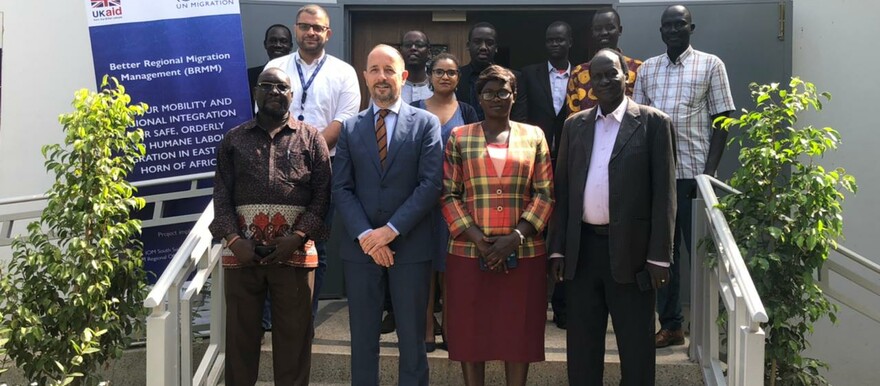The Government of South Sudan with support from the International Organisation for Migration (IOM) has launched the piloting Labour Market Information System (LMIS), a virtual tool that allows the production, storage, dissemination, and use of information on the labour market.
In a press release to the media, IOM said the system will also contribute to the knowledge of labor migration indicators in the country, as well as the formulation of evidence-based policies and strategies.
During the launch, representatives of the government, IOM, and other key stakeholders learned first-hand about the LMIS, the need to have labour market information and statistics in a systematized and accessible manner, and the role of LMIS systems in government decision-making.
Participants also discussed the challenges of obtaining practical information on labour markets to match supply and demand efficiently and effectively.
“The piloting of the system in South Sudan is a response to an assessment performed under the Better Regional Migration Management (BRMM) program, funded by Foreign Commonwealth Development Office that showed the government’s interest and readiness, to address the labour market supply and demand needs on youth employment and job creation in the public and private sectors,” the statement reads. “The government also indicated the need to have LMIS to address the protection concerns of migrant workers’ mobility, foreigners living and working in South Sudan, South Sudanese living and working abroad as well as returning migrant workers.”
The statement said the system will support the government, its partners, development partners, and the private sector to understand South Sudan’s labor market, diaspora, and private sector engagement to match the supply and demand of the labour force.
Peter van der Auweraert, Chief of Mission, IOM South Sudan was quoted as saying that LMIS will encourage government to design evidence-based policies and programs that ensure labor supply matches with labor demand.
In 2020, South Sudan was believed to be hosting some 882,000 migrants, the majority coming from the East and Horn of Africa, according to the United Nations International Migration Report.
“The Government of South Sudan welcomes the launching of the Labour Market Information System as these fit into our National Development Strategy whereby the government seeks to drive socio-economic development through evidence-based policies. The LMIS is a one-stop virtual venue where governments can generate information on labor supply and demand,” said Adwok Chol Awur Dhonyal, the Acting Director General of Policy Planning and Statistics, the Ministry of Labour.
IOM said it will provide support, capacity-building, and technical assistance for the Ministry of Labour as they install and implement the system.




